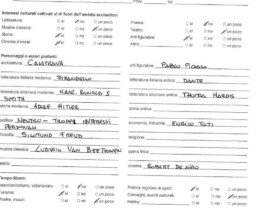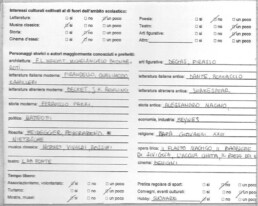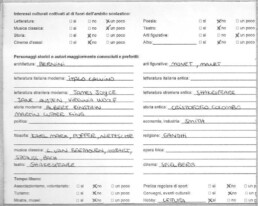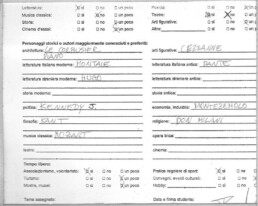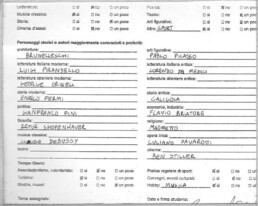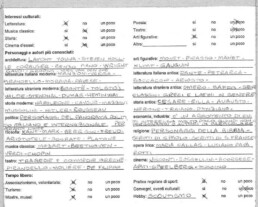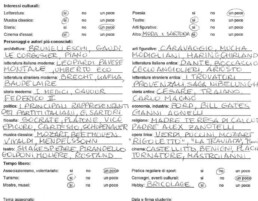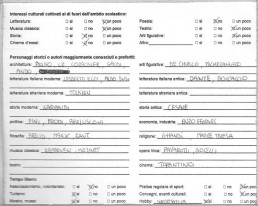An Art historian of our Faculty was about to fail a student when he asked for a last chance. Maternal instinct suggested her an easy question: “Tell me about Giotto as architect”. Too much for him: “Please, please professor, don’t ask me about minors”.
I often thought back to that anecdote when I entered a classroom at the beginning of a course, asking myself what level of culture and knowledge could have those kids who expected me to teach them how to create a project. How many of them could hid behind a friendly and smiling face unfathomable abysses of pure ignorance?
To be properly related to my audience, one day I asked the class to fill out a form in which, apart some bureaucratic information, I submitted a small survey on cultural interests and extracurricular activities. I repeated the experiment for a few years, collecting an interesting dossier.
The majority of the answers revealed an evident poor cultural background, with little in-depth study and large gaps and a frame of values drawn almost exclusively from the mass media rather than from reading books or attending to cultural groups or so. The repeated misspellings of the names of authors or characters, then, made it clear that the information was drawn mostly verbally, ‘by ear’, and with a poor level of attention.
This gap between spoken and written language was already known to me from having read several reports by students in which they repeated with the utmost indifference syntactical and grammatical mistakes of all kinds. So I had deduced that today the concept of mistake is very different from that of the older generations, and much more elastic. Today seems that it is enough to make oneself understood, and how the result comes out it has poor importance.
Faced with this majority of students who proved to be deep below the threshold once required for the secondary school, there was, however, also a substantial minority who demonstrated a lively base of interests even outside the field of study, and often an appreciable and comforting commitment to daily life and voluntary activities.
Anyway, my long experience didn’t draw me in a negative judgment about the students, apart from some very rare cases: but I could not say the same about the service that had evidently been offered to them by the educational institutions in secondary school. And I do not talk about the university.
I report here some of those forms, duly got anonymous, in the parts related to the survey.
